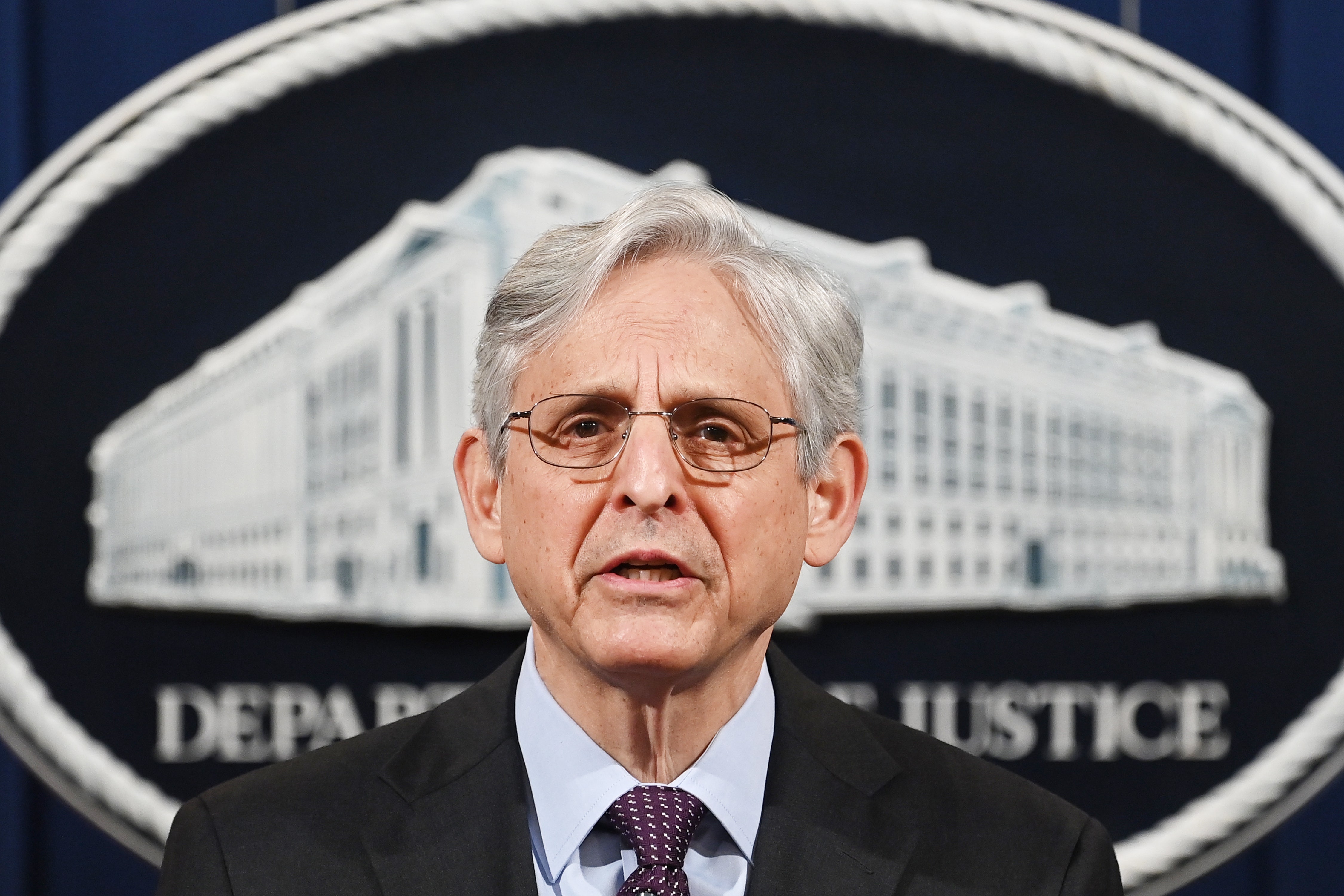
www.foxnews.com
Trump FBI raid: DOJ files response on possible 'special master' appointment for Mar-a-Lago docs
The Justice Department responded to arguments from former President Donald Trump asking for an independent review of documents seized from Mar-a-Lago.
Politics
The Department of Justice (DOJ) Tuesday filed its response opposing the appointment of a "special master" to review documents seized from former President Donald Trump's Mar-a-Lago estate, saying classified documents were likely "concealed" at the residence in violation of a grand jury subpoena.
Before prosecutors obtained a search warrant, Trump's lawyers claimed that all of the records from the White House that remained at Mar-a-Lago were in a secure storage room on the premises.
But the filing said documents were likely "concealed and removed from the Storage Room and that efforts were likely taken to obstruct the government’s investigation."
The warrant was obtained after "the government developed evidence that a search limited to the Storage Room would not have uncovered all the classified documents at the Premises."
It continued, "That the FBI, in a matter of hours, recovered twice as many documents with classification markings as the ‘diligent search’ that the former President’s counsel and other representatives had weeks to perform calls into serious question the representations made in the June 3 certification and casts doubt on the extent of cooperation in this matter."
The filing gives the most detailed account of the Mar-a-Lago search so far.
The department argued in the filing that Trump's request for a special master "fails for multiple, independent reasons," saying it's both "unnecessary" and would "harm national security interests."
The filing said Trump "lacks standing" for a special master because the records in question belong to the United States, not him.
It said Trump won't suffer any injury without an injunction "and the harms to the government and the public would far outweigh any benefit" to him.
The filing added that any materials that could be subject to attorney-client privilege were already separated by the government's filter team.
"Furthermore, appointment of a special master would impede the government’s ongoing criminal investigation and—if the special master were tasked with reviewing classified documents—would impede the Intelligence Community from conducting its ongoing review of the national security risk that improper storage of these highly sensitive materials may have caused and from identifying measures to rectify or mitigate any damage that improper storage caused," the filing said. "Lastly, this case does not involve any of the types of circumstances that have warranted appointment of a special master to review materials potentially subject to attorney-client privilege."
After finding five documents marked as CONFIDENTIAL, 16 marked as SECRET and 17 documents marked as TOP SECRET at Mar-a-Lago, the filing said, "Counsel for the former President offered no explanation as to why boxes of government records, including 38 documents with classification markings, remained at the Premises nearly five months after the production of the Fifteen Boxes and nearly one-and-a-half years after the end of the Administration."
Fifteen boxes were returned to National Archives and Records Administration in January of this year.
The filing added that personal effects are not subject to return for several reasons, including that the evidence of "commingling personal effects with documents bearing classification markings is relevant evidence of the statutory offenses under investigation."
"Of most significant concern was that highly classified records were unfoldered, intermixed with other records, and otherwise unproperly [sic] identified." Id. (internal quotations omitted). The NARA Referral was made on two bases: evidence that classified records had been stored at the Premises until midJanuary 2022, and evidence that certain pages of Presidential records had been torn up."
"During the August 8 Execution of the Search Warrant at the Premises, the Government Seized Thirty-Three Boxes, Containers, or Items of Evidence, Which Contained over a Hundred Classified Records, Including Information Classified at the Highest Levels," the filing said.
Three classified documents were also found in a "desk drawer" during the search, the DOJ said.
The filing also brushes off the claim that the seized documents were covered by executive privilege.
"The former President cites no case—and the government is aware of none—in which executive privilege has been successfully invoked to prohibit the sharing of documents within the Executive Branch," it said.
FBI agents raided Trump's property earlier this month as part of an investigation into whether Trump illegally possessed documents relating to national security at his private residence.
Attorney General Merrick Garland said he approved the raid himself and that the DOJ did "not take such a decision likely." Trump has attacked the raid as politically motivated, which was the basis for his request of an independent review, via a "special master," of the documents the FBI took from his home.
"Politics cannot be allowed to impact the administration of justice. President Donald J. Trump is the clear frontrunner in the 2024 Republican Presidential Primary and in the 2024 General Election, should he decide to run," Trump's lawyers wrote in their request last week. "Law enforcement is a shield that protects Americans. It cannot be used as a weapon for political purposes."
The Justice Department's Tuesday filing comes after the Florida federal judge overseeing the case, Aileen M. Cannon, Saturday indicated her "preliminary intent" to grant Trump's request for a special master. It also comes before a scheduled Thursday hearing on Trump's motion.
Cannon notably has not yet granted another request from Trump – that she block the government from reviewing the materials it has seized from Trump's estate until a special master is appointed. That means the DOJ is able to continue to review the documents in the meantime, which it said it is doing in a separate filing Monday.
The government initiated the search in response to what it believed to be a violation of federal laws: 18 USC 793 — gathering, transmitting or losing defense information; 18 USC 2071 — concealment, removal or mutilation; and 18 USC 1519 — destruction, alteration or falsification of records in federal investigations.
Trump and his lawyers, meanwhile, say that the documents were brought to his home while he was the president and that he ordered them declassified under broad authority he claims is given to the president.
























































